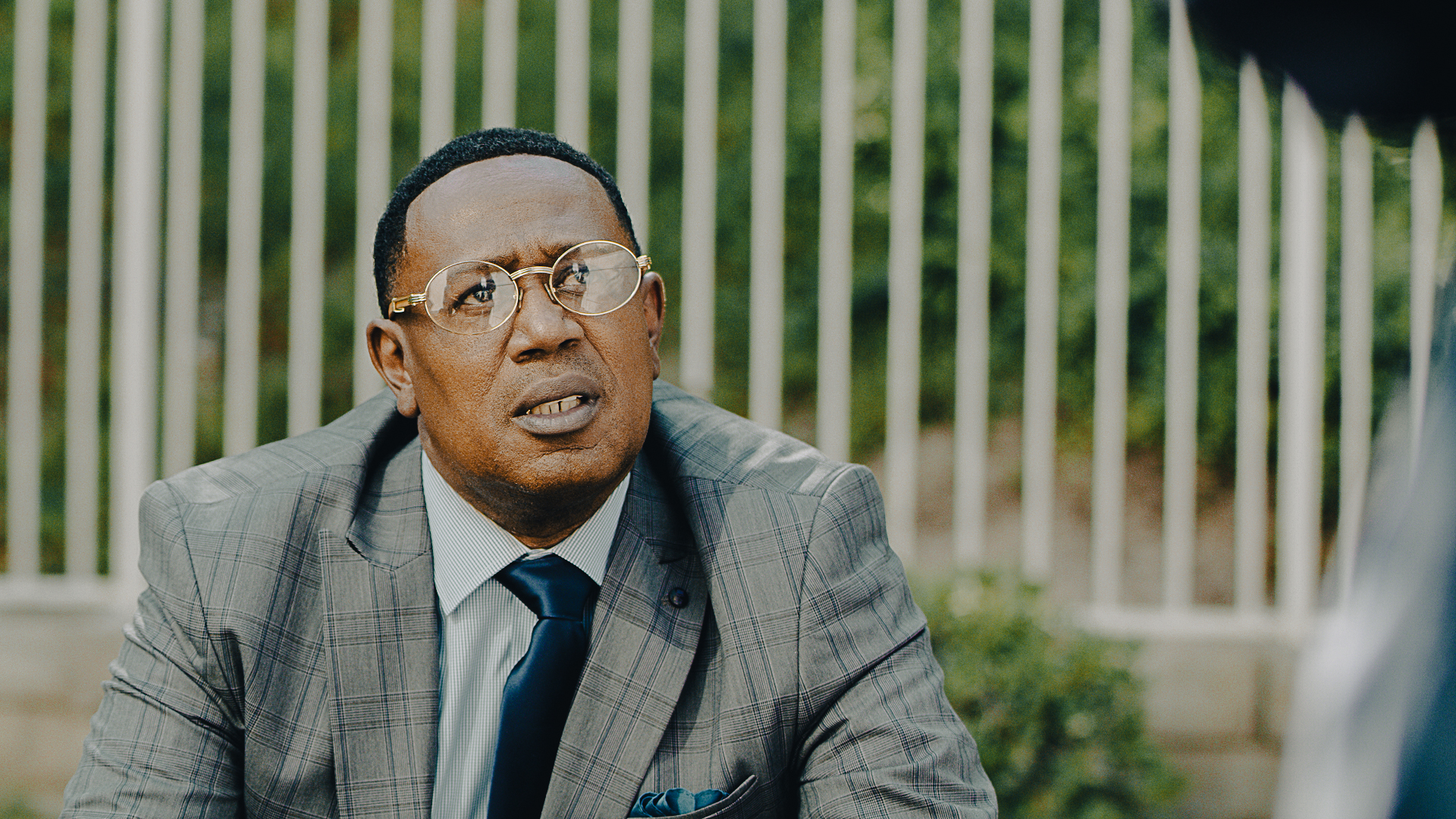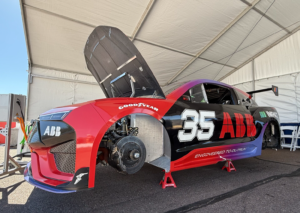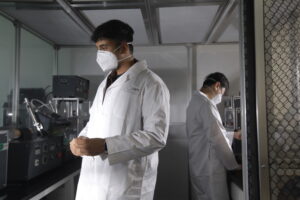Sitting among carved mahogany wood paneled accents and with displayed awards gathered from an unrivaled multi-hyphenate career, Master P began our conversation by allowing me to take the floor. Not surprisingly, he is a master delegator with a brilliant sense of when to shoot the ball and when to pass it.
One of the greatest minds to emerge from the 1990s hip hop pantheon, Percy “Master P” Miller transcended a childhood of poverty in New Orleans’ Calliope Projects, to become a beacon of generational wealth, divested business interests, and ownership in an industry once notorious for exploiting its artists. From music, movies, and real estate, to the food and automotive industries, his portfolio continues to grow.
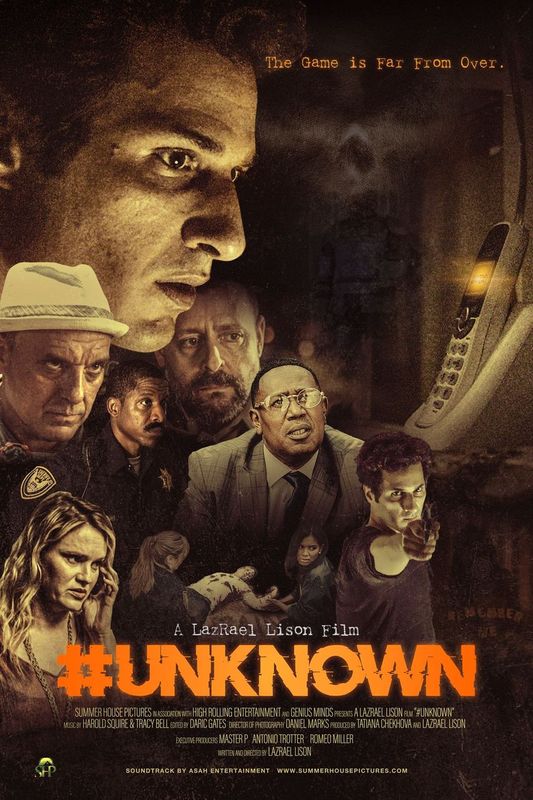
A true gentleman who prefers to remain above the fray of controversy and relishes sharing the spotlight with those around him, Master P’s example and mentorship has guided artists from Snoop Dogg, Lil’ Wayne, and 2 Chainz, to his eldest son, rapper, actor and entrepreneur, Romeo Miller. Master P understood the power of ownership long before Instagram and the age of celebrity branding. Romeo Miller credits his father’s example as the driving force in his own life. He tells me, “Growing up watching one of the best and most powerful businessmen to ever do it guided me to be the man I am today. And according to Romeo, his father’s lessons went well beyond material success. “The biggest lesson I learned from him was to simply be a good person. Owning a business and brand doesn’t matter if you aren’t giving back.”
Master P’s latest project is the upcoming film, #Unknown, a creative collaboration with his son and co-executive producer, Romeo Miller; and the film’s producer, writer, and director, LazRael Lison. Lison describes the film as, “a mystery thriller that gets pretty intense, and great for this Halloween season.”
Master P plays the mayor of a town in a string of alleged unsolved murders, as a local novelist abandons his second book to attempt to solve the mystery of these crimes; his own life unraveling in the process.
When it comes to directing the man who is used to calling the shots, LazRael Lison sings his praises, recalling, “Master P went over and beyond,” adding, “it’s always so cool when you can see the Executive Producer also be a student. As a businessman, P wears so many hats and that requires flexibility. As a director I’m always flexible in a sense that I can write it on paper, but when you give a soul to that character, it’s all you. Watching P bring [this role] to life, when people see him, they’ll think, ‘Wow, I really enjoyed that!’”
Allison Kugel: What are the top three things that have shaped the person you are today?
Master P: I would first say God, my kids, my family, and just being able to be blessed.
AK: But is there anything in your life that was a turning point, that completely transformed you?
MP: I started realizing that we don’t have to dwell on our past, that it’s okay to move forward; it’s okay to better yourself. It’s ok to have faith. Nobody is perfect. That’s what it was for me. I feel like once I started having kids, I realized I have more to live for and I wanted to be around to watch them grow up, so I had to start making the right choices. And I want other people to say, “If P can do it, I can do it. It’s okay to better yourself.” One thing my grandfather always told me was, “If you want to better yourself and you want to live longer, mind your business and stay out of other people’s business.”
AK: Growing up where you did, what gave you the power of belief that you could become everything you ultimately became?
MP: It was my grandfather, but it was also knowing if you don’t have anything, you can still make the best out of what you have. I think a lot of people don’t realize that just having life, even with what we are going through now, through this pandemic, you never know when somebody is going to walk out that door and you’re never going to see them again. When you live in poverty, you know the only way is up. That’s what pushed me and motivated me, and I think we shouldn’t want to be around people that hold us back. Even in poverty, I started realizing that if I’m going to be successful, I have to cut the negative people around me off. Everybody has 24 hours. A lot of people are mad at other people and judging what other people have. That hate ends up being more important than the positive. It becomes more important than you making it out or bettering yourself. So, I started celebrating people. When I was living in poverty, I started looking at other people who had a nice car or a nice house, and I started being happy for them. When you can be happy for somebody else’s success, blessings will start coming to you. Everybody wants to get to the bag, but you are never going to get to the bag being negative, envious, and jealous. Pride took the devil out of heaven, and he took three fourths of the angels with him. We have to stop that pride, put that to the side and say, “Let me invest my time into something positive, and into me being a better person.”
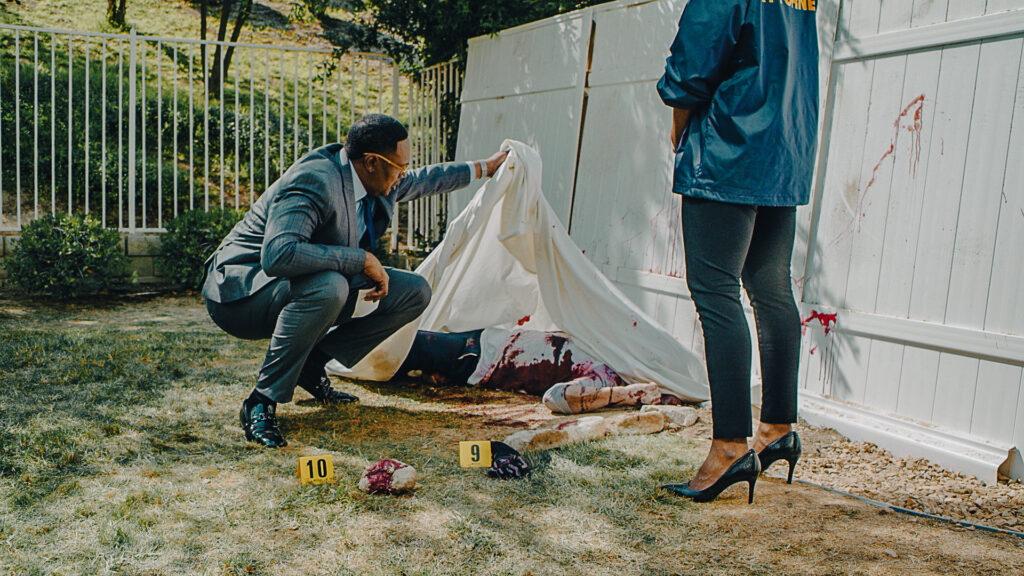
AK: You started off as a basketball player. Was music your Plan B?
MP: I was good at music, but I didn’t know I was that good until I actually got into it when I got [injured]. You might think you’re going in one direction, but God will put you in another direction. When I got hurt playing basketball in college, I felt like I had failed everybody in my family. I was supposed to go to the pros, and I’m thinking I’m on my way and I’m about to take care of my family and get them out of the ghetto. But then I got hurt. I always tell people, let your failures take you to the next level and let your failures make you great. I remember my grandfather saying, “Look son, don’t sit around here and just keep worrying about what happened. You gotta go make something else happen.” I had to find something else that I loved, and God opened up a bigger door. Most of my friends that played basketball at the time I played didn’t make that much money in the NBA, and what I was able to do [with music] was just unheard of. And I could have easily just been in the music business, but I went to college and educated myself. Without the right education, I don’t think my mindset would have been the way it is today, and the way I was thinking about business.
AK: Everybody I asked about you said the same thing, that you were never owned by a record label; you’ve always owned your own music. Was that also part of the plan?
MP: It happened with my grandfather. He was in the war, and when he came back home, they were supposed to give him ten thousand dollars to buy a house, and they never gave it to him. He always said, “Grandson, you need to start your own business. Start your own army.” That’s where No Limit (the name of Miller’s record label and production company) came from. My grandfather instilled that in me; “You’re not going to make it in their system. We have to create our own.” I always went against the grain. I knew I couldn’t just work for a paycheck, because I was living in the projects with sixteen people in a three-bedroom apartment. I had so many people and so many mouths to feed, and I couldn’t do that with a regular paycheck. I had to own it, and I’ve always kept that mentality, to where, when you look at African Americans and Latinos, we don’t own anything. My mindset was to change that narrative, to be able to own my own masters, to be able to build other executives. That’s where education and knowledge come in. We search and seek and pray for money, but we don’t search and seek and pray for knowledge and information. That’s what’s going to get us to our destiny.
AK: Yes! I love that you said that. I pray every night with my son, and we never ask for things. We say, “Thank You,” and we pray for wisdom, knowledge clarity, health, and so on. Gratitude is what attracts things to you.
MP: When you bless others, blessings will come. My most important job is to be a servant. It’s not about being a boss. It’s about being a servant and being able to serve my community, to serve underprivileged kids, being able to serve the elderly, and being able to educate the next generation.
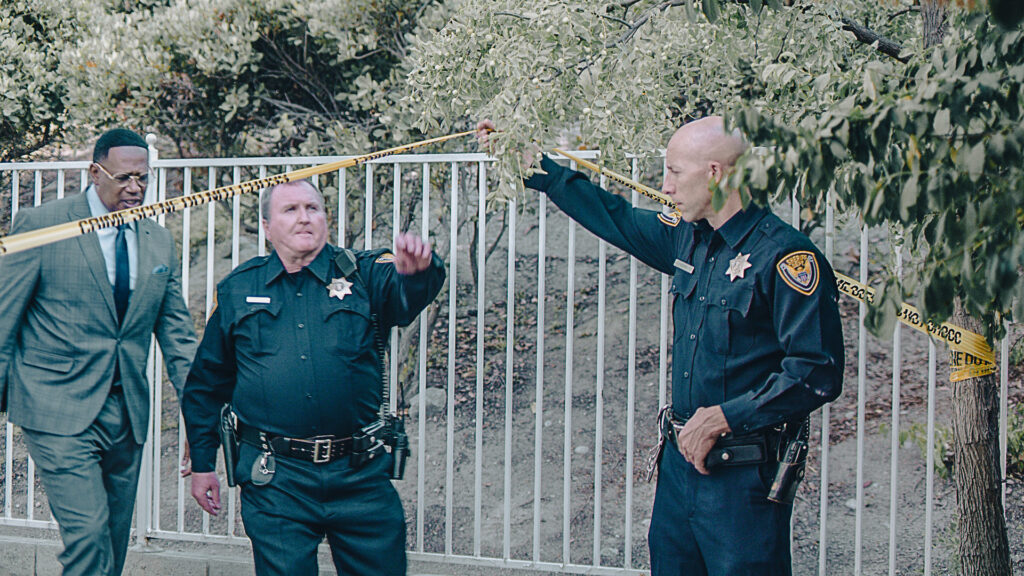
AK: Early on in your music career, you were Tupac Shakur’s opening act. What was that like?
MP: It was crazy, because everyone was there to see Tupac. They didn’t care about me (laugh). I was happy to have just one person [in the crowd] jump up. One guy was just going crazy for me in the audience. And being on the road with Tupac, I said, “I’m going to turn that one fan into millions.” To then be able to sell 100 million records is just incredible. Knowing that if you believe in something… and you don’t have to be the best, because I wasn’t the best at first. I had to get into the studio and work hard. I was living on the West Coast, and I had this Southern slur in how I talked, so I had to become better. They say the best way to do that is to stay in the gym, which was the studio. I wasn’t afraid to outwork everybody. I outworked those guys. While Tupac and all those guys were partying, playing, and just having fun on the road, I was in the studio working. I said, “While they sleep, I’m going to be working.”
AK: What did Tupac think of your music?
MP: At first, he didn’t understand it. Then they started seeing as we are getting into some of the southern markets, how people were gravitating to my music. They started listening and saying, “This is alright.” In the end, Tupac really started liking my music, and that was a blessing, because he was the biggest star in the world of hip hop at the time. To have him jamming to my music, I knew I was on my way.
AK: Considering history and what happened to him and Biggie, what are your thoughts on the feuds going on now, like with Kanye West and Drake. Kanye posted Drake’s home address on social media, and Drake’s fans vandalized Kanye’s childhood home. Things start becoming public and crossing the lines of safety.
MP: I don’t think people realize they have all of these fans that might even be crazy and take things into their own hands. We have to watch what we do. There’s a lot of selfish people out in the world, and there are a lot of snakes in this world. I think when you are at this level and you are making this type of money, even with some of these young artists that were losing their lives in hip hop, which is sad, we have to be thankful and take this as a blessing and grow. I think it’s the people around them. You have to have people giving you better advice, and you have to hold yourself accountable. I’ve always had self-accountability. And start thinking about what you say or what you do, and how it effects and hurts other people, and how you wouldn’t want that to be happening to you and your family. A lot of this is self-hate. I would rather sit in the sewer and eat cheese with rats than sit at a nice restaurant and drink champagne and eat lobster and steak with a snake, and I think that’s what a lot of us are doing. When you get to that level of the game like some of these artists, why lose what you have? Once you get killed or go to jail there’s no turning back.
AK: If you could travel back in time and alter any famous historical event, where would you go and what would you attempt to change?
MP: The Martin Luther King shooting. I feel he left too soon. I feel like that guy was on to something incredible. I have so much respect for him, and sometimes I imagine what would have happened if somebody had told him not to go to that hotel. He didn’t have that much security with him, and it just didn’t seem right. I feel like we just had so much more to learn from him. This guy was nonviolent, and he wanted to bring people together: blacks, whites, Asians, Latinos… I’ve never seen a person like that. I’m not saying he was perfect, because nobody is perfect, but it’s what he stood for when he brought people together. It’s the reason why we are able to have our freedom today and be able to work with each other, and not be judged by color. I think that is what I would want to be a part of.
AK: Wow!
MP: He was a dreamer, so being able to have somebody dream like that is incredible.
AK: What do you think you came into this life as Percy Robert Miller to learn, and what do you think you came here to teach?
MP: I came into this world to be a student of the world. I’m constantly learning every day and getting better, and I also realize I came into this world to be a father to my kids. When I use the word “father,” it’s different from being a daddy. I have a lifetime commitment to my kids, and as a single dad you have to stay focused on your kids. My kids mean everything to me.
AK: How many kids do you have?
MP: Altogether, I have nine.
AK: No way (laugh)! Damn, okay!
MP: I don’t drink or smoke so (laugh)…
AK: (Laughs) That’s a much better hobby. That’s funny. What is your philosophy for raising happy, well-adjusted kids?
MP: You have to deal with [each kid] as their own individual. Some kids you have to scream at, some kids you have to talk to softly, and some kids, you have to take them to the side and nourish them. I think basketball prepared me to be a father. When you are on the court with certain people, it’s all these different personalities and it’s the same way with raising kids. Some kids want a lot of your attention, and some kids want to go off and do their own thing, so you have to know that and be prepared to sacrifice. My life is not about me anymore. I’ll do anything for them, and I think a lot of parents are not prepared for that. They still want to go off and live their best life, but if you have kids, you don’t get a chance to do that anymore.
AK: One hundred percent. What’s something you have yet to master?
MP: I have yet to master technology. It just keeps changing. Every time you think, “I got this,” something else new is coming out, which is a good thing. We are growing and constantly getting better. In a couple of years, we are supposed to be flying in automobiles. It doesn’t even seem right, but you know it’s going to happen.
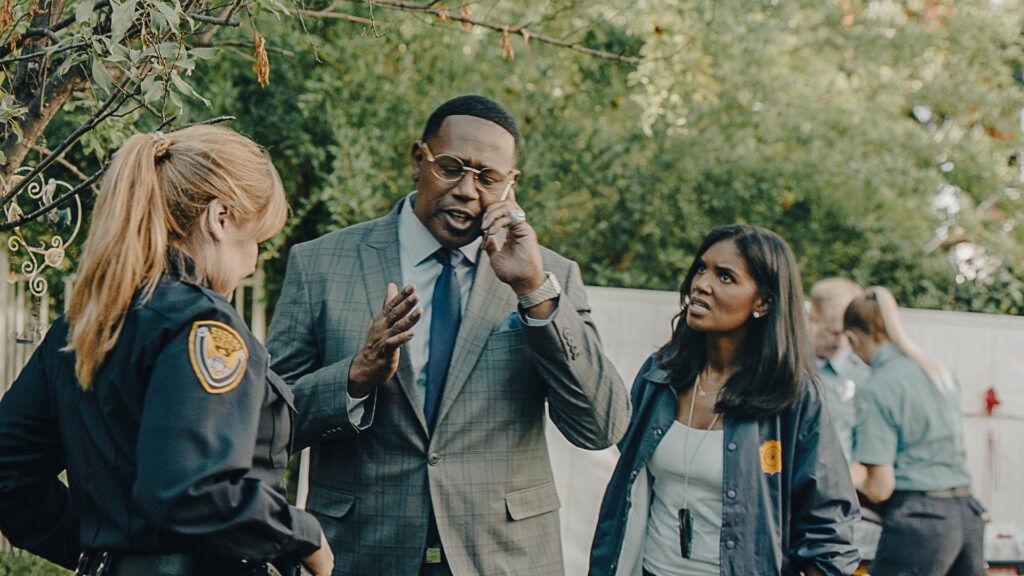
AK: I read in Black Enterprise that you’re backing the launch of a new car called Trion SuperCars (trionsupercars.com).
MP: I didn’t create the car. It is actually a guy that has been working on building this car for a while, and I was able to get behind the project. It’s great to have a guy who’s been working with so many other car companies (including Tesla) create this supercar, and me being a part of helping him market and promote that. That’s what it’s all about for me, to be able to help people like that and bring their dreams to life, so it’s a blessing.
AK: What makes it a supercar?
MP: What he is creating and the technology, and that he knows about building cars. What makes it a “supercar” is that it’s able to compete with all the other supercars out there and has just as much technology.
(In a recent statement, Miller dubs Trion SuperCar “the first black-owned supercar manufacturer in America.” He credits the soon-to-be-launched car company with “adding diversity to the automotive industry, which will offer a high-end line of models and a line of affordable luxury vehicles.” Miller calls the fledgling automotive company, “history in the making.”)
AK: When will Trion SuperCars hit the market?
MP: I think in two years. I can’t wait until it’s done!
AK: What is still on your bucket list?
MP: Being able to put together a superhero movie that is owned by us, and not by Hollywood. When you look at Black Panther, that movie made more than a billion dollars, but it wasn’t owned by us. It looked like us. I want to change that narrative. That is a real bucket list item of mine.
AK: You don’t think the success of Black Panther made big budget, studio backed movies with an all-black cast that much more marketable and in-demand?
MP: See, but think about this, right… after the movie was over, we went back home, and nobody really benefited. Chadwick Boseman, his salary was $500,000, and he ended up making maybe two or three million dollars from a billion-dollar movie. Robert Downey Jr. makes $70 million when he does Iron Man, and [Black Panther] was way bigger. I’m just saying, to be able to put money back into our culture and into our community off of our own work, I think that is a game changer.
AK: Your hand is in so many different things these days, and your movie #Unknown will be released next month. What is it about acting that appeals to you?
MP: When you get to a certain level, you want to bring projects to life. For me, it is almost like being two different people. I can go be a businessman on this side and come back and utilize my acting skills and my fanbase, and just feeding them. It’s connecting to the audience and letting people see me in different ways. In this movie I play the mayor, and it’s a suspense thriller. It’s about being able to let people see me in different ways. In my next movies, I want to go beyond what you think you would see me doing in a movie. I’m even thinking about, like how Arnold Schwarzenegger played his role in Kindergarten Cop. I want to do a movie like that, set in an elementary school, playing a teacher or a principal. It’s fun to be able to portray other people and to bring a character to life.
AK: Tell me about the plot of this movie.
MP: #Unknown is a suspense thriller, but it’s also about a relationship and about trust and faith in somebody. The main character, his girl doesn’t believe him about what is going on with all these murders that happened years ago in this town. The movie has a great plot to it, but at the same time, throughout the story your mind is constantly trying to figure out what’s true, and did this happen, and when did it happen? I think it’s also about a couple trying to figure out if they can trust each other. Is this guy who he says he is? This film asks the question: in life, do you really believe in the person you are with?
AK: And do you ever really know somebody?
MP: Exactly, that’s what it is. That’s the unknown.
AK: You’re used to being the boss, and on a movie set, when you are playing a character and you are working with someone like filmmaker LazRael Lison, who produced, wrote, and directed this film, are you good at taking direction from someone else?
MP: It’s all about being a team player. When you are making a film, you have to know that we are working together to bring something to life, so it is never about me. I learned that from playing sports, there is no “I” in team. We had a great group of people, and everybody was professional, and everybody did their job. When I get on a movie set it is not about me being a boss or an executive producer. If I’m an actor, I have to play my role and you have to let the director play his role, and everybody else in the cast has to play their role if we are going to win. To be a good teacher, you have to be a good student. I’m constantly learning how to get better. I know I’m on my way to doing some great things and bringing some great projects to life, because I want to keep getting better and you have to put in the work. Even when you look at somebody like a Samuel Jackson, he didn’t get stronger in his game until he was older. This is about growing for me. I don’t compare this to my music or my business or anything else I’ve done. I take acting seriously, because I want to constantly keep growing and getting better.
AK: So many films are now being released, simultaneously, in theatres and on streaming services, because of this pandemic. It’s re-shaping the entire movie industry. What are your thoughts?
MP: I think it’s great, because people are able to enjoy these movies and get a chance to see it when they want to see it. Streaming is so important, and we are focusing on that. You’ll be able to go to Amazon Prime to see this movie, #Unknown, and it’s incredible. It’s the new way, and a lot of people want to be safe during this pandemic, so this is a great way to put movies out now.
AK: Do you think a movie release can be as exciting of an event, and be profitable, when the majority of people elect to watch it at home instead of in the theatre?
MP: We’re going to have to adapt to the times. People have a choice. Some people still want to go to theatres and see films, but some people are more comfortable at home right now. This is about safety, right now. A lot of these movies are not going to make the money they normally would make, but when you look at the streaming right now, those numbers are about to start going up, so it’s just a new way.
#Unknown, starring Master P, Judd Nelson, Tom Sizemore, Denise Boutte, and Hal Ozsan; and produced, written, and directed by LazRael Lison, premieres October 1st, exclusively on Amazon Prime. Follow Master P on Instagram @masterp and follow filmmaker LazRael Lison @lazrael_lison. Watch the trailer for #Unknown.
Listen to the full conversation with Master P and filmmaker, LazRael Lison, on the Allison Interviews Podcast on Apple Podcasts and Spotify. Follow Allison Kugel on Instagram @theallisonkugel and at allisoninterviews.com.



